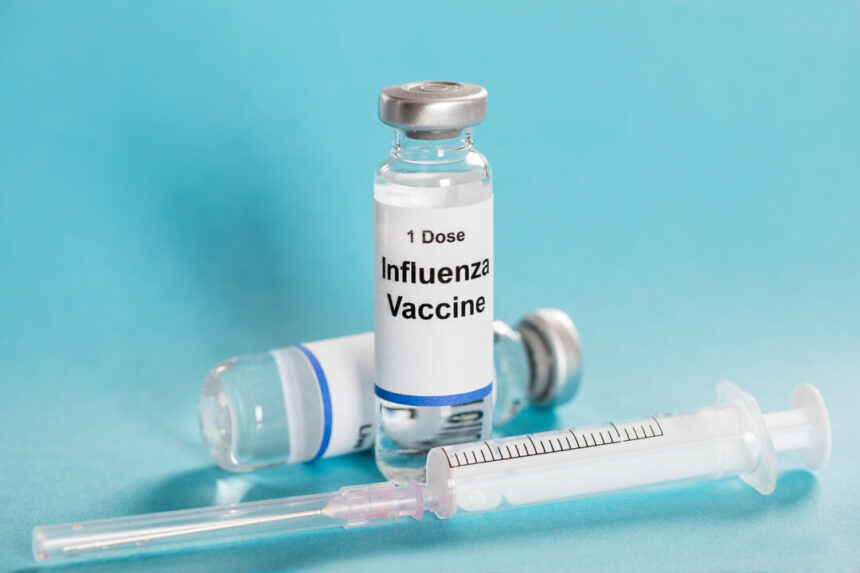Australians are preparing for the upcoming flu season as New South Wales (NSW) Health urges residents to get the flu vaccine amid concerns of low vaccination rates. Chief Health Officer Dr. Kerry Chant has warned that influenza levels are on the rise, particularly among those over 65, and recommends booking a free vaccine as soon as possible.
Dr. Chant emphasized the importance of vaccination, stating that less than half of people aged 65 and over in NSW have received their influenza vaccine this year. With influenza and COVID-19 cases both increasing in NSW, now is the time to prioritize vaccination to protect against severe illness.
The latest NSW Health Respiratory Surveillance Report revealed a significant increase in influenza activity, prompting Dr. Chant to stress the importance of getting vaccinated without delay. In the week ending May 25, influenza notifications rose by 27 percent, while COVID-19 notifications increased by 23 percent.
The report also highlighted a rise in admissions from emergency departments, with younger age groups showing higher rates of Respiratory Syncytial Virus (RSV) and influenza notifications. Those aged 65 and older had the highest rates of COVID notifications, while pertussis and pneumonia cases were unusually high among school-aged children.
Residents of NSW are advised to wear masks when necessary and stay up to date with recommended vaccinations if feeling unwell. Dr. Phil Britton, an infectious diseases pediatrician, noted a surge in influenza notifications across all age groups, especially among young children aged three to four years.
Government-funded vaccines are available for individuals aged over 65, children aged six months to five years, and Aboriginal Australians over 6. Those with underlying health conditions such as diabetes, cancer, immune disorders, severe asthma, and pregnant women are also eligible for free vaccines.
High-Risk Health Workers Must Receive the Flu Vaccine
High-risk staff within NSW Health are required to receive the influenza vaccine to comply with work regulations, as outlined in a recent policy directive. This includes new students and staff working in emergency departments, oncology wards, and those assisting pregnant women and children under two.
All Category A workers and new recruits must receive one dose of the seasonal influenza vaccine annually to be considered compliant. Non-compliance with the vaccine requirement necessitates adherence to other infection control measures while working in a Category A position.
These high-risk staff are also advised to ensure they are vaccinated against measles, mumps, rubella, hepatitis B, chickenpox, diphtheria, tetanus, and whooping cough. Category B staff who do not have direct patient contact or work in clinical areas are recommended, but not required, to receive these vaccines.
Additionally, COVID-19 vaccine mandates have been lifted for all health workers and students in NSW, with COVID-19 vaccination transitioning from mandatory to strongly recommended.
$630 Million Allocated for Vaccines in Federal Budget
The federal government announced a $631.1 million allocation over four years to support ongoing access to vaccines, with $490 million dedicated to sustaining the national COVID-19 vaccine program from 2024 to 2025. An additional $82.5 million will ensure continued collaboration with states and territories for vaccination programs.
Part of the funding will be used to broaden the eligibility of Shingrix for shingles prevention, with $57.7 million allocated over four years for this purpose.
Please provide an alternative version
Source link






